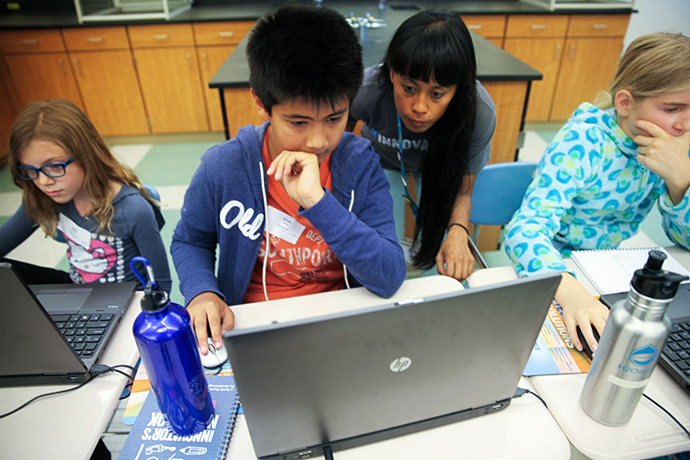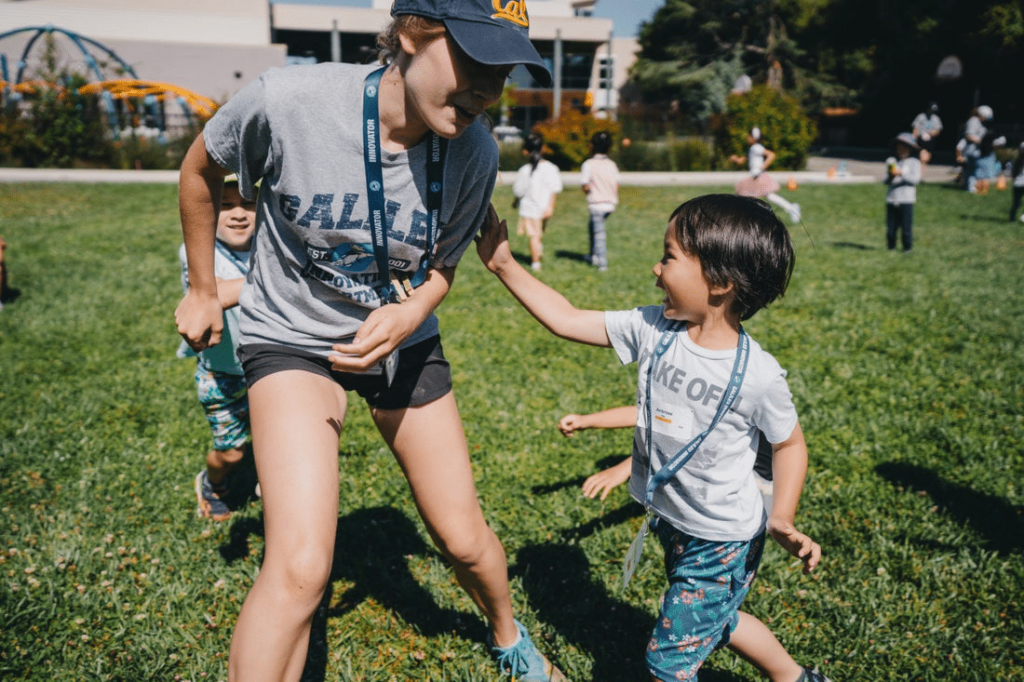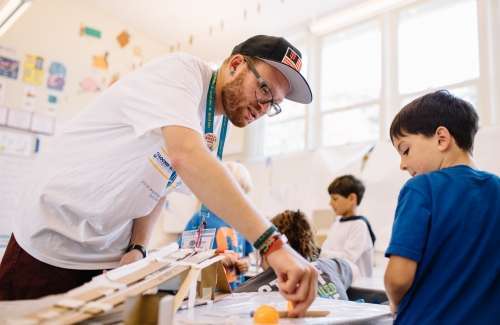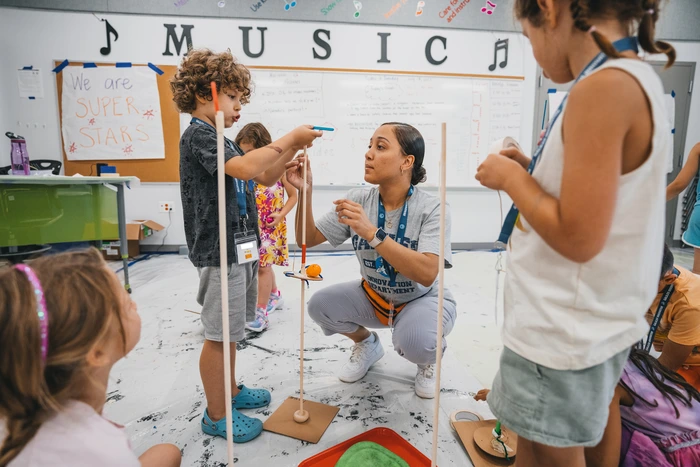Jack Andraka was a freshman in high school and thinking about pancreatic cancer after the death of a friend’s father. While contemplating nanotube applications during a biology lecture on antibodies, the boy who was eventually nicknamed the “Edison of our times” suddenly put the seemingly unrelated topics together and had a revolutionary idea. After developing an experimental protocol proposal, he emailed it to 200 researchers. Only one responded. Impressed by Jack’s initiative, pathologist and pancreatic cancer researcher, Anirban Maitra, allocated space for Jack in his Johns Hopkins research lab. Jack stuck with it for months, utilizing both cutting edge technology and common materials. Ultimately, he developed a dipstick probe that may detect one of the most deadly cancers from a tiny drop of blood in five minutes at a cost of three cents.
The Fourth Industrial Revolution is providing unparalleled communication and collaboration capacity for problem-solvers around the world, and this offers profound potential for solving global issues. Think climate change, disease prevention and food and water insecurity—problems that have wide-ranging effects on humanity. These and other intractable problems have no easy solution, and will therefore require imaginative and innovative ideas. Kids, too, are concerned with the future of our Earth and empathetic to the plight of their peers around the world. As digital natives, they are well-informed and well-connected, born with ready access to technology and all that it enables. Our kids have unprecedented resources and tools with which to channel their compassion into social, economic and environmental issues and to solve problems with technology.
PROJECT-BASED LEARNING IS CAREER PREPARATION
Kids learn from current events, and like the rest of us, have access to realtime news. Thus, they develop a keen awareness of the problems people face around the world. Through project-based learning, kids are entrusted with authentic, real-world problems. Besides being an engaging way to learn that gives kids choice and voice, project-based learning models the way that we tackle projects in our jobs. In this respect, it is very realistic career preparation. Additionally, when kids have access to real tools and resources, the learning becomes something they can use in future contexts.
CAUSES THAT MOTIVATE COMPASSION IN KIDS
Compassion comes easily to many kids, as they are in touch with their emotions and can empathize with others. They identify with other kids and animals alike, and can easily relate to issues such as healthcare, school violence and issues affecting senior citizens (grandparents). They are concerned with poverty and homelessness and have inherited a planet where climate change and resource sustainability affect all of us. Whether or not social, economic and environmental issues are prevalent in their local area, increased connectivity has made global problems seem much closer to home. And, a strong willingness to help can be a catalyst to overcoming reservations and motivating action.

ACQUIRING TECHNOLOGY SKILLS AND LEARNING TO USE TOOLS
Technology opens up a lot of problem-solving potential, from the ability to communicate in realtime to the fundraising capacity of crowd-sourcing. Many skills are acquired in the routine course of technology use, but some kids hunger to learn more. When paired with creative problem-solving and design thinking, proficiency with technology can help kids implement their ideas and create novel prototypes. Galileo Summer Quest provides a variety of summer camp options to help kids take their technology skills to the next level. Here are a few tools that kids can apply to solving problems:
- Digital devices and coding: Learning to program digital devices has tremendous potential for creating apps, circuits and robots that address our most challenging issues. Familiarity with the latest hardware and software gives kids an edge.
- Video production: Learning to create videos and upload them to their own YouTube channel enables kids to communicate with a wider audience and share their stories on a global stage.
- Virtual reality: As another method for storytelling, virtual reality has unlimited applications for education and training, entertainment and medicine. The uses for virtual reality are expected to grow exponentially as its range expands and its innovative potential is realized.
- 3-D modeling and printing: The versatility of 3-D printers for creating rapid prototypes and constructing objects with less waste cannot be underestimated. The 3-D printer is another technology that will greatly expand the reach of creative problem solvers and inventors.
- Engineering solutions: The ability to envision and construct a prototype with tools and available materials is a skill many of the world’s innovators share. When kids learn a system for testing and redesigning their solution, they have a useful process they can apply in a variety of contexts.
EMPOWERING CHANGEMAKERS
Our kids are growing up in a smaller, “flatter” world where global problems seem so much closer to home. But with technological proficiency and a belief in their own efficacy, kids are using their compassion and creativity to impact issues for the greater good. Not only are kids helping to solve some of the world’s most challenging problems, but they are gaining skills and processes that will help them throughout their lives and in future careers. With such a promising early start and access to resources and tools, it appears the future is in good hands.
To help your kids build technology skills while enhancing their problem-solving potential, check out these summer camps in your area: San Francisco Bay Area, Southern California, and Chicagoland. Sign up for our mailing list to keep up-to-date on our camp happenings, innovation resources and registration information for our upcoming 2019 camp season.





